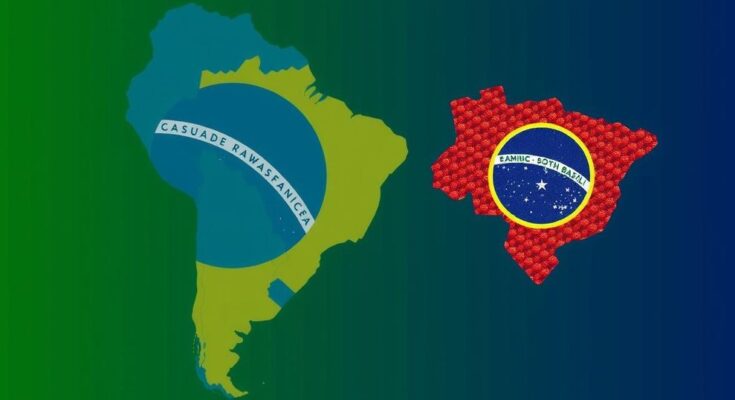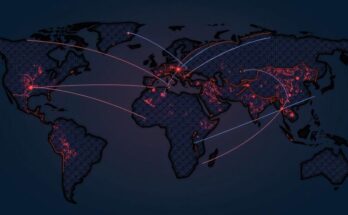South Africa and Brazil have emerged as leading players in the global iGaming industry, with participation rates of 30% and 22%, respectively. As per Blask’s analytics, Brazil has surpassed England in online betting participation, climbing to fifth place in bookmaker usage. While South Africa exhibits stability in market metrics, Brazil shows higher volatility yet a stronger growth trajectory. Both countries present distinct demographic profiles, indicating a significant shift in the global gambling landscape influenced by developing economies.
In a significant development within the global iGaming industry, South Africa and Brazil have ascended to join the ranks of the top five iGaming markets worldwide. This transformative trend has been meticulously analyzed by Blask, a leader in AI-driven market analytics within the iGaming space, revealing crucial insights into the factors propelling this remarkable change. The current landscape sees Brazil overtaking England regarding online betting participation, with 22% of the Brazilian population engaging in online betting activities as opposed to 19% for England. This surge from 15% in the previous year underscores Brazil’s rising prominence, where it now ranks fifth globally in bookmaker usage, following New Zealand, Greece, Norway, and South Africa. Meanwhile, South Africa leads globally, boasting a 30% participation rate, thereby establishing itself as the preeminent market for iGaming. As for market metrics, the Blask Index has illustrated an erratic yet upward trend in South Africa, where January commenced at 53 million, fluctuating throughout the year with September peaking at 62 million. The effective gross gaming revenue (eGGR) for South Africa has shown a continuous average increase, moving from $88 million in January to $93 million by September, thereby indicating stability within their market metrics. Conversely, Brazil’s market is characterized by heightened volatility, starting at 169 million in January and peaking at 228 million in July. The eGGR data for Brazil, equally volatile, shows a stable upward trajectory that began at an average of $433 million in January, culminating at $475 million by September. This variance illustrates the broader growth potential within the Brazilian iGaming sector. Moreover, Blask’s customer profile analysis highlights the demographic trends in both countries. In South Africa, approximately 18 million citizens are engaged in iGaming, predominantly aged between 25 to 44 years. Income distribution shows a significant presence of middle-income individuals, with 55% earning between 100,000-250,000 ZAR. In contrast, Brazil’s iGaming audience comprises roughly 47 million individuals, heavily weighted toward the 18-34 age bracket, with income figures predominantly resting between 15,001-30,000 BRL and 30,001-45,000 BRL. These emerging markets’ ascent signals a noteworthy realignment in the global iGaming landscape, indicating that developing economies are solidifying their roles as influential players. The convergence of expansive populations, increasing rates of digital adoption, and changing regulatory environments positions both nations for further growth. In conclusion, the rise of South Africa and Brazil as dominant iGaming markets illustrates a fundamental shift within the industry that impacts global dynamics. As these countries pave the way, they offer a potential blueprint for other emerging markets aiming to establish themselves in the online gambling sector, thus shaping the future of iGaming on a worldwide scale.
The global iGaming industry is experiencing a notable transformation, with emerging markets, particularly South Africa and Brazil, now recognized as leading players. This shift has significant implications for market dynamics, as evidenced by data from Blask, an industry leader in market analytics. By focusing on developing economies, stakeholders are increasingly noting the changing landscapes shaped by population engagement, regulatory frameworks, and digital adoption. Understanding these trends is pivotal for operators and investors in the iGaming space, as it highlights the potential for growth and the changing nature of consumer engagement in these markets.
The entry of South Africa and Brazil into the top echelon of iGaming markets denotes a pivotal moment in the global online gambling sector. While South Africa sets the standard with unprecedented engagement rates, Brazil’s rapid growth redefines its competitive stance relative to established markets such as England. This emerging trend suggests that developing economies are becoming integral influencers within the iGaming landscape, characterized by distinct demographic profiles and varied market dynamics. As these patterns evolve, they will significantly impact future strategies for operators and investors within the sector.
Original Source: next.io




